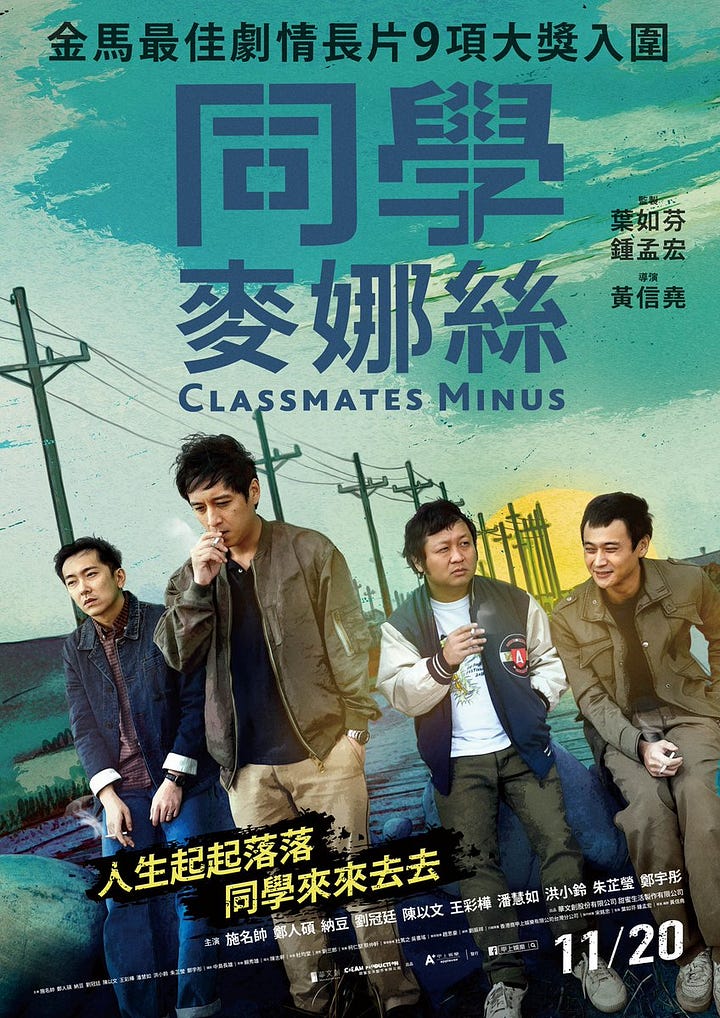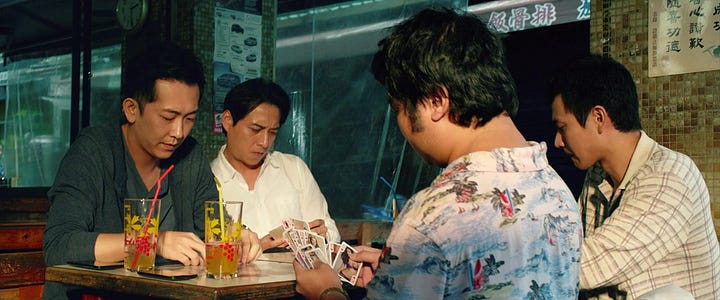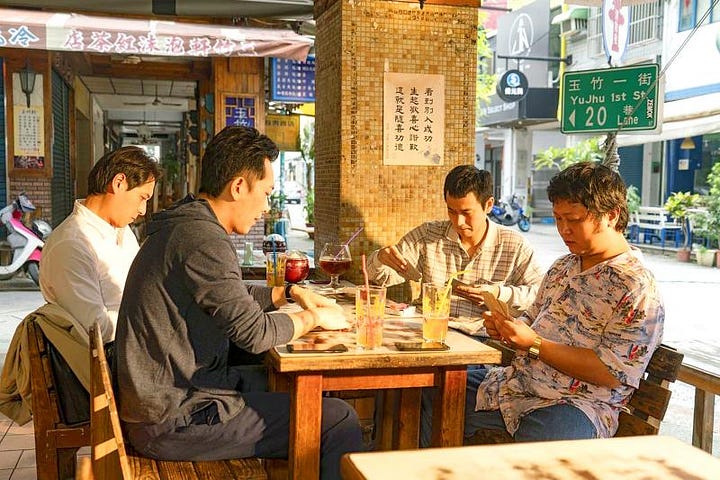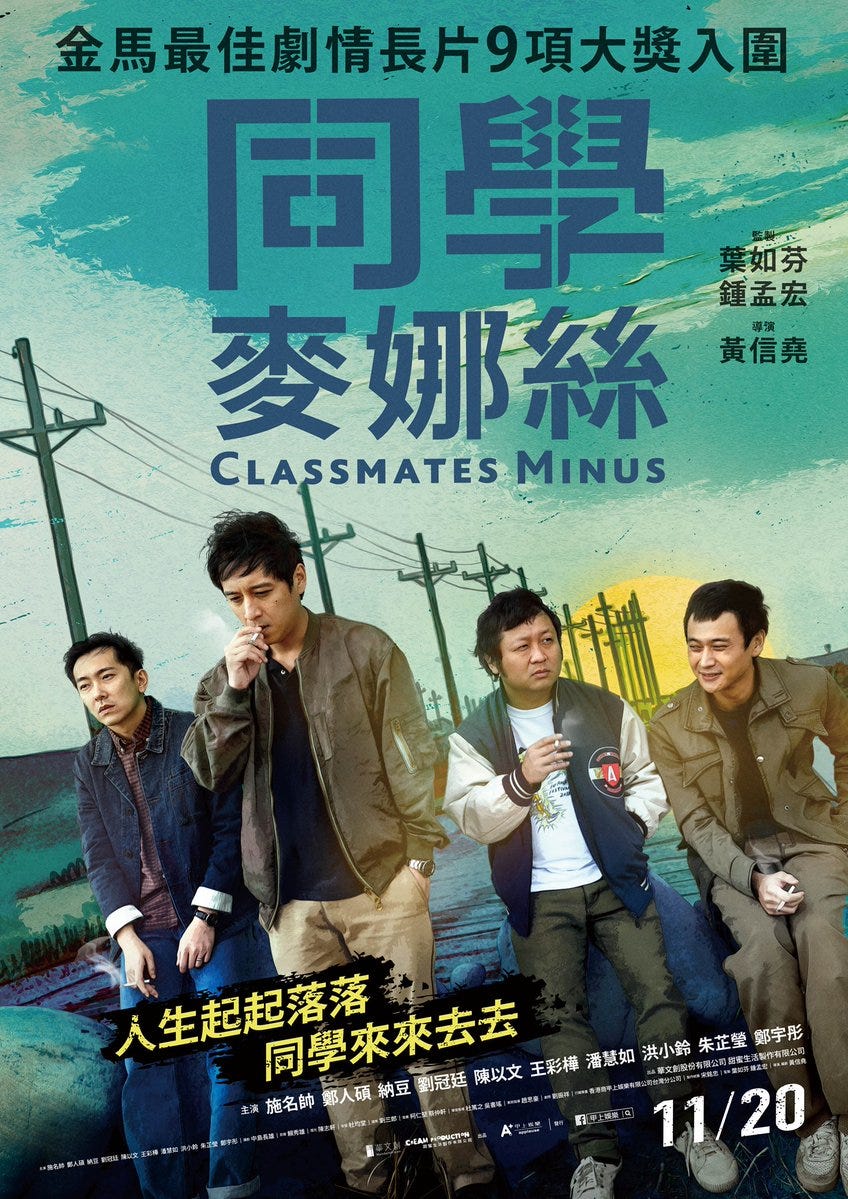Reviews: Classmates Minus (同學麥娜絲). National identity and popular culture classrooms. Netflix. This is a subsequent film from the director of The Great Buddha+ (大佛普拉斯). It is rare to have a film or tee vee show that can have me belly-laugh and cry uncontrollably at the same time. Related to my previous review of the recent Taiwanese soap opera Mad Doctor and Taiwan’s Public tee-vee – in this film, and in this director’s work, ordinary Taiwanese outside of colonialist Chinese Taipei are not props. In that choice alone this is a significant gesture towards a new, emerging Taiwanese identity. There is a broader idea about the nature of imperialism – whether it is British, American, or Chinese; whether it is about Taiwan University or Harvard graduates; income, how many houses owned, net worth, profession, gender, race, and ethnicity. Out of the diversity of imperialisms through time and across space, one shared trait is their default setting in categorizing everyone/everything else as-compared-to-the-idealized-imperialist. This is how we often get the “Oh look he is just an uneducated janitor but how nice he saved money to donate to the school kids just like a real human being/us” news stories.
What Classmates Minus reminded me of is how different the storytelling is when one engages subjects outside of the imperial core as they are, warts and all – with a good dose of wry humor, cleared-eyed, but full of love. Gentle and heartfelt enough to make me cry, as if these are my classmates. Humorous and sarcastic enough because life sucks, your friends are unreliable, your family problematic, but whatareyougonnado?
The older I get the more soothing it is to listen to characters who can speak fluent Taiwanese – I understand about ninety percent of it without subtitles. To my ears, Taiwanese is a more emotion-laden language than Mandarin, just as I have noted Taiwanese rock n’ roll songs are more powerful than Mandarin ones. For me, the attachment to this language I cannot speak fluently due to Chinese imperialism-invasion is in part remembering elders who are gone. Very interesting that during the last year of my Dad’s life, he stopped using Mandarin altogether – as if the illness and pain liberated him from the prison the Chinese refugees built for his professional-cultural life, as he faded he reclaimed his own ancestral language.
This film’s storytelling structure is something I want to go back and map out to think about. You cannot say it is disorganized, but it is not a conventional structure. A small sidenote: I have noticed Taiwanese films and tee-vee shows where political elections appear as background or subplots. I have often argued with my parents about Taiwanese temples and religious practices – they jump too quickly into the religion v superstition judgment; my point is humans fight to protect their family, property livelihood, and their Goddesses and Gods. Likewise, I think even though most of the portrayal of elections and democracy have been jaded, some are even cynical – it is the ritual and melded into the quotidian – as if it is family outings and annual holidays and temple festivals – that rootedness and ordinariness of democracy must be what most bother the Chinese communists and KMT. And finally, kudos for using one of the most brilliant Taiwanese indie bands, 濁水溪公社.




© Taiwan in World History 台灣與世界歷史. This site grants open access for educational and not-for-profit use. Maps and illustrations are borrowed under educational and not-for-profit fair use. If you are the rights holder and prefer not to have your work shared, please email TaiwanWorldHistory (at) Gmail (dot) com and the content will be removed.




